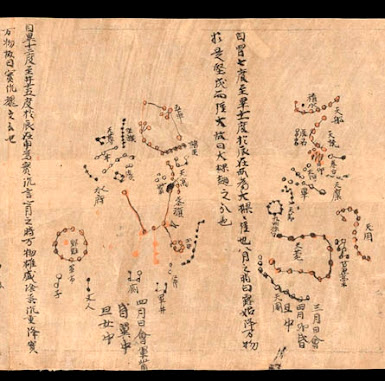Space Curiosity From Ancient Times
History of Human Space Curiosity-
We all live in the World where Most of things are waiting for research. We only have discovered about 1% in case of Science Research. As a Human we are Extraordinary Animals on this Planet. Humans Homo-sapien or the Modern Human exists on Earth From 300000 . Much of time Human takes to Develop the Civilizations. Only Human having ability to understand the things and make Analysis on that. Human Minds are every time interested to find facts on anything he can see. Ancient Humans also Amazed after seeing this Milky ways , Galaxies, Stars and everything. Humans are interested in Space from starting of Human Civilization. Worlds Various Civilization Like Indus Vally Civilization, Greek Civilization ,Sumerian ,Mesopotemian, Egyption all have made contribution in Astronomical Knowledge.
 |
| Konark Sun Temple (India) |
 |
| Solar System |
Indus Vally Civilization was very Rich in Astronomy .Astronomy was well studied in that culture during 3 BCE .Astronomy was taken as interesting subject among Indian Scholers. Indians made there calenders on the basis of Sun and Moon Motions in that times. As the Indus Valley civilization did not leave behind written documents, the oldest extant Indian astronomical text is the Vedanga Jyotish , dating from the Vedic Times. Vedanga Jyotisha describes rules for tracking the motions of the Sun and the Moon for the purposes of ritual. During the 6th century, astronomy was influenced by the Greek and Byzantine astronomical traditions.Aryabhata (476–550), Proposed a planetary model in which the Earth was taken to be Spining on its Axis and the periods of the planets were given with respect to the Sun. He accurately calculated many astronomical constants, such as the periods of the planets, times of the Solar and Loonar Eclipses and the instantaneous motion of the Moon. Early followers of Aryabhata's model included Varahamihira, Brahmagupta, and Bhaskara 2. During the Shung Empire Times Astronomy get advanced in India .It was Golden Era for Indian Astronomy. Indian Scholers have exactly Calculated Times of repeatation of Commet.
 |
| Western Astronomy (Greece) |
Western Civilizations Astronomy History Belongs to Mesopotemia. Mesopotemia is the origine of Western Civilizations Astronomy. Greek Scholer Astronomers have discovered many Explorations. Astronomy and astrology: From a very early time, the Mesopotamians had charted the movements across the sky of the sun, moon, planets and stars. They were able to predict celestial events, such as eclipses, using that knowledge.
 |
| Mesopotamia Map |
Sumerian Civilization given the knowledge of dividing cicle into 360 Degrees or hour into 60 Minutes.It was started from Sumerian Culture. During the time of Seleucid Empire (323-60BC) Astronomers began to use "Goal Year Text" for Prediction of Motion of Planets. The Ancient Greeks also Developed there Astronomy they had treated it as like Mathematics. Plato and Aristole were the Greek Scholers. Aristole and Eudoxus had Proposed that -The Universe is made up of complex systems of Spheres, whose circular motion combined to carry the planets to move around the earth.
 |
| China Astonomy |
Astronomy in China is from long Times . Detailed records of astronomical observations were kept from about the 6th century BC, until the introduction of Western astronomy and the telescope in the 17th century .Chinese astronomers were able to precisely predict eclipses.Much of early Chinese astronomy was for the purpose of timekeeping. The Chinese used a lunisolar calendar, but because the cycles of the Sun and the Moon are different, astronomers often prepared New calendars and made observations for that purpose. Astrological divination was also an important part of astronomy . Astronomers took careful note of Guest Stars which suddenly appeared among the Fixed Stars. They were the first to record a supernova, in the Astrological Annals of the Houhanshu in 185 AD . Also , the supernova that created the Crab Nebulla in 1054 is an example of a "guest star" observed by Chinese astronomers , although it was not recorded by their European contemporaries. Ancient astronomical records of phenomena like supernovae and comets are sometimes used in modern astronomical studies.
Thanks for Reading my First Blog Post, Please give a Comments about this Post.







Nice post ❤️
ReplyDelete